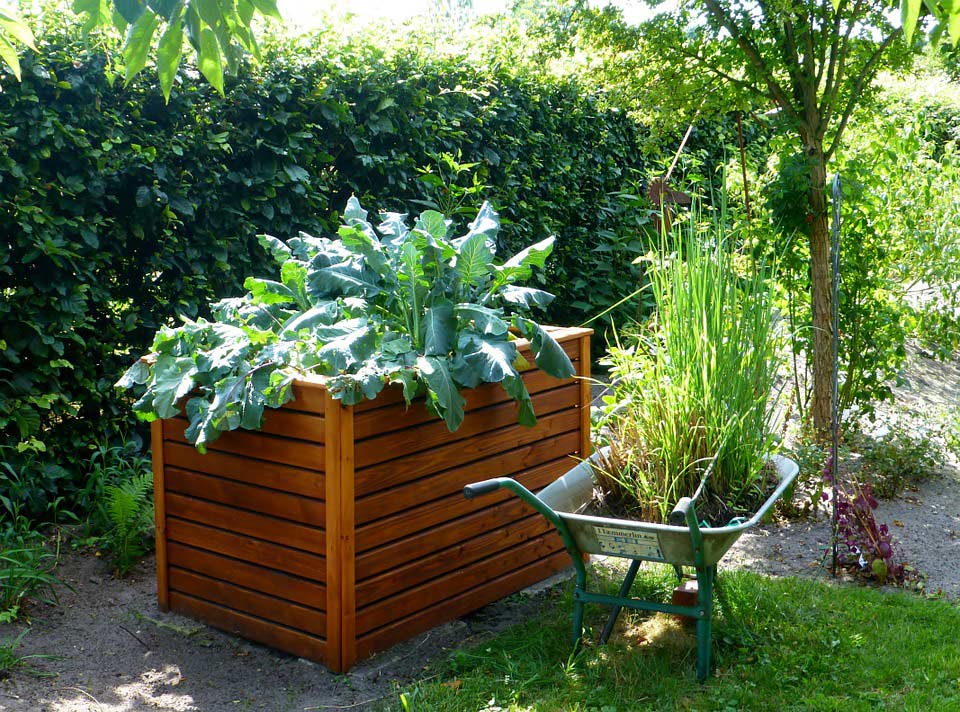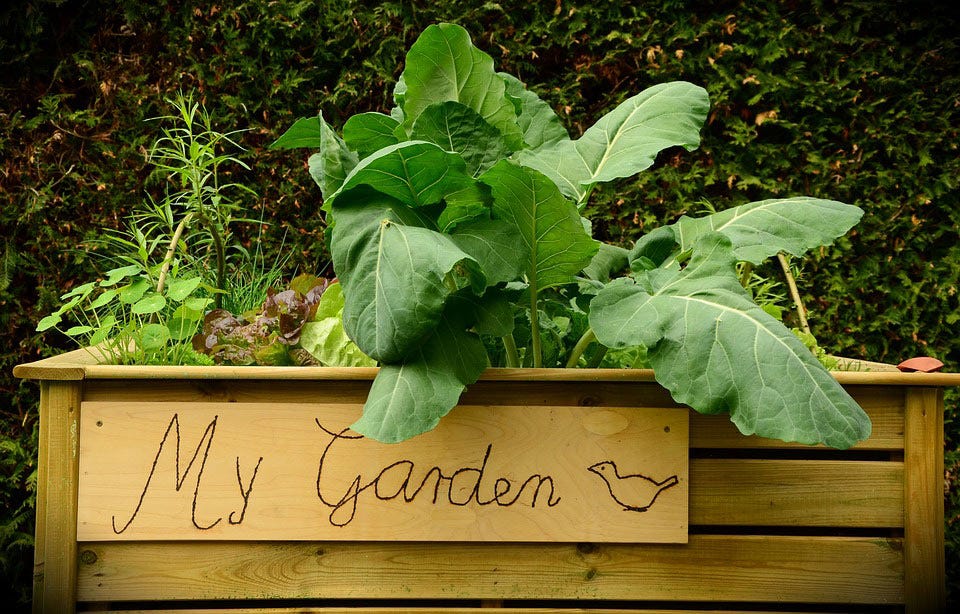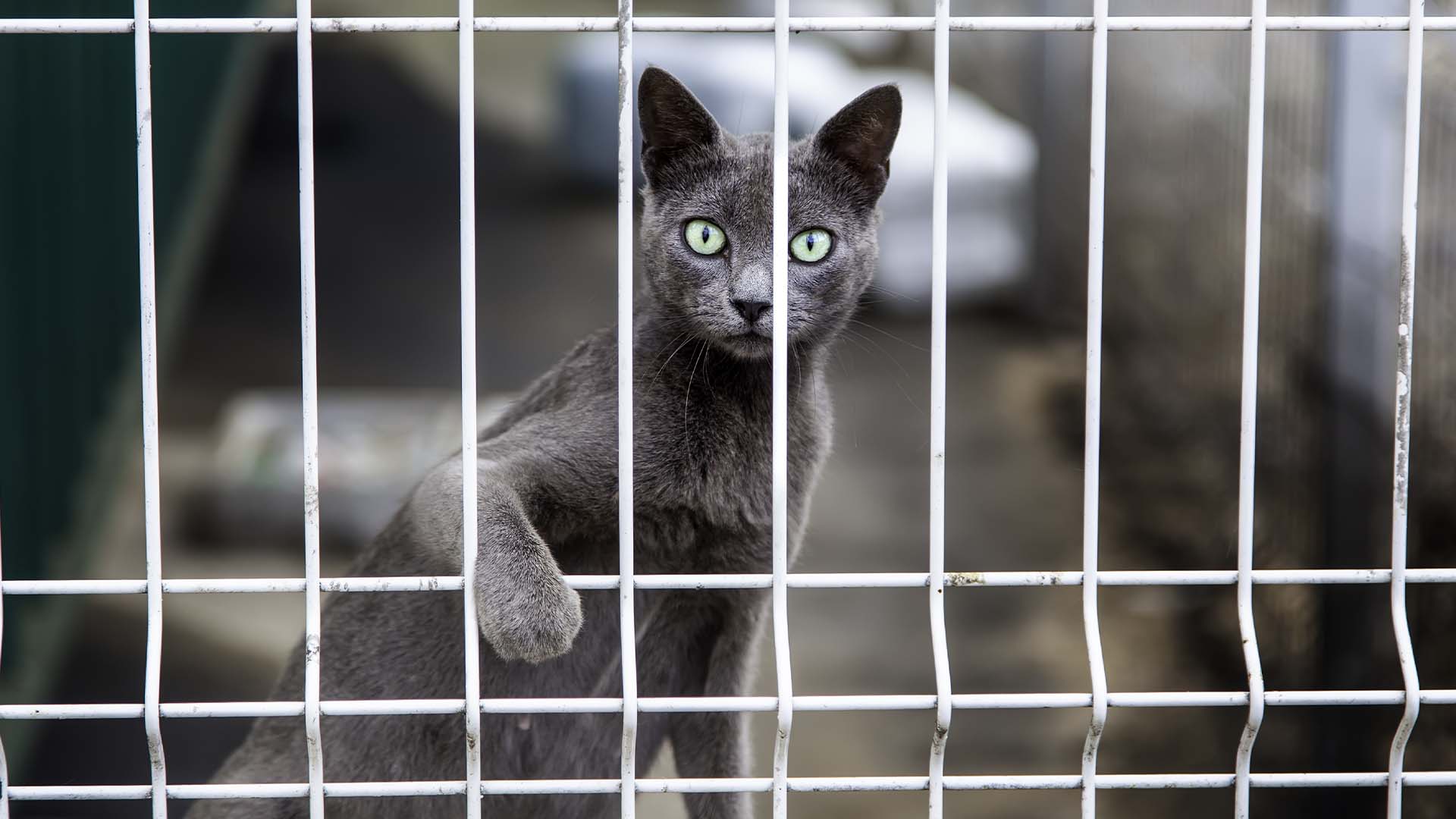Raised gardens have slowly but surely been gaining popularity among all types of gardeners from the serious to the casual. Regardless of whether you want to grow vegetables, fruit, trees, or herbs, raised gardens are perfect for almost any plant. While the options for what to grow are seemingly endless, there are pros and cons to this type of gardening system, just like any other. Take a look below to learn more about what raised gardening is and the advantages and disadvantages to help you choose whether or not installing a raised garden is the best option for you.
What Is a Raised Garden?
Simply put, a raised garden is a garden that is above ground level. This could mean several different things, which can feel a little confusing. There are three different types of raised gardens or beds.
- Raised Ground Beds - This type of raised garden has no supporting structure such as a wood beam to surround the dirt. Typically, the soil is raised 6-8 inches above the normal soil level and resemble a small mound.
- Supported Ground Beds - These are the same bed as the raised ground bed with one added feature, supporting walls. These can be almost anything, such as wood or brick, as long as it separates your garden from your lawn.
- Containerized Raised Beds - This type of raised garden involves making or buying a container in which you place the soil. These fully encase your garden and can sit directly on your lawn or can be elevated several inches or feet depending on your preferences.

Advantages of a Containerized Raised Garden
- Protection From Pests - Most homeowners have had to battle some sort of garden nemesis, whether it was a mole, gopher, or a rabbit. Having a raised bed prevents pests from chewing on roots, eating leaves, etc. Your flowers, plants, and crops are all protected (mostly) from common small rodents and mammals.
- Soil Control - Many gardeners suffer from malnourished soil. On the bright side, raised gardens allow you to have complete control of your garden’s soil. You choose which soil to buy and the nutrients you want to add to your soil. You get a garden that is truly made from scratch and totally controlled by you!
- Space Saving - Nothing takes up a yard quite like a garden. If you have a smaller yard or balcony, you know just how much of a commodity space can be. Having a raised garden allows you to save space by placing your garden anywhere you please. They can be moved whenever you want and can hold a large number of plants, so you never have to choose between having a garden and sacrificing a large portion of your lawn.
- Drainage - Gardening is a delicate balance of giving your plants enough water without drowning or depriving them. Raised beds allow for better water drainage. Rest assured that your plants won’t be damaged by sitting in puddles of water.
- Easily Accessible - Raised gardens are perfect for anyone with mobility issues. These gardens can be raised to any height and placed nearly anywhere allowing better access for those who don’t want to lean over all day or are wheelchair bound.
- Reduces Runoff & Erosion - Contained gardens help prevent runoff in areas where the soil is more likely to erode or is prone to water runoff. This helps cut down on soil costs as most of the soil will remain inside of the garden.
- Plant Variety - By controlling every aspect of your garden, you can grow as many different types of plants as you please. Flowers, succulents, trees, fruit, vegetables, you name it, you can grow it in a raised garden.
- Extended Growing Season - Another benefit of your garden being raised is the effect on the growing season. Raised beds offer more exposure to the air meaning the soil in a raised bed becomes warmer and ready for planting season far earlier than soil that is not raised. You will be the envy of all your neighbors when they see you planting and growing vegetables early!
- Easy Maintenance - Once raised gardens are built, they require very little maintenance. The soil and plants must be kept moist, and weeds should be taken out, however, unless the container becomes damaged, there is not much else to do other than enjoy the fruits of your labor.
- Makes Difficult Sites Productive - Some areas just don’t seem to want to grow plants. Others have no green space available making it difficult to grow anything other than a small herb garden. Raised gardens can be built to suit even the smallest and inhospitable of spaces. As long as you have nutrient-rich soil and enough water and light to keep your plants healthy, you can grow nearly anywhere.

Disadvantages of a Containerized Raised Garden
- Cost of Materials - Gardens cost money to upkeep whether it be from water usage, seeds, fertilizers or animal repellents. Building a raised garden does have the drawback of needing extra materials to construct. Wood, nails, and any lining needed will all be added to the extra costs not usually associated with traditional gardening.
- Time - While gardening is usually an effective method for relaxation, time is always on the forefront of everyone’s minds. Building a raised garden and getting it ready to set up initially takes more time to set up than a traditional garden depending on how skilled at carpentry you are. Once built, they can save time in the future.
- Water Usage and Seasonal Considerations - Due to a raised garden’s superior drainage, they tend to dry out faster in the warmer months. This requires more frequent watering to keep your plants hydrated. Due to the increased air circulation, raised beds can become colder sooner than natural soil. Any flowers or vegetables planted during the winter need to be hardier than in the summer to withstand cooler temperatures.
- Confined Root Systems - Some plants, such as tomatoes, have extensive root systems that can extend feet into the soil. Some planters cannot feasibly be large enough to hold them and allow them to grow to their full extent.
- Soil Quality - Store bought soil is typically less nutrient dense than natural soil. You may have to add fertilizer and/or compost to keep your soil as beneficial as possible to grow healthy plants.
Would You Choose to Have a Raised Garden Bed?
Let us know! What type of raised bed do you have and which of these pros and cons did you find most helpful? Here at Havahart, we love to hear all about your garden related stories! Also visit our Facebook page to share pictures of your gardens with the Havahart community and get more useful tips. Sign up for our e-newsletter to stay up to date on exclusive offers.




